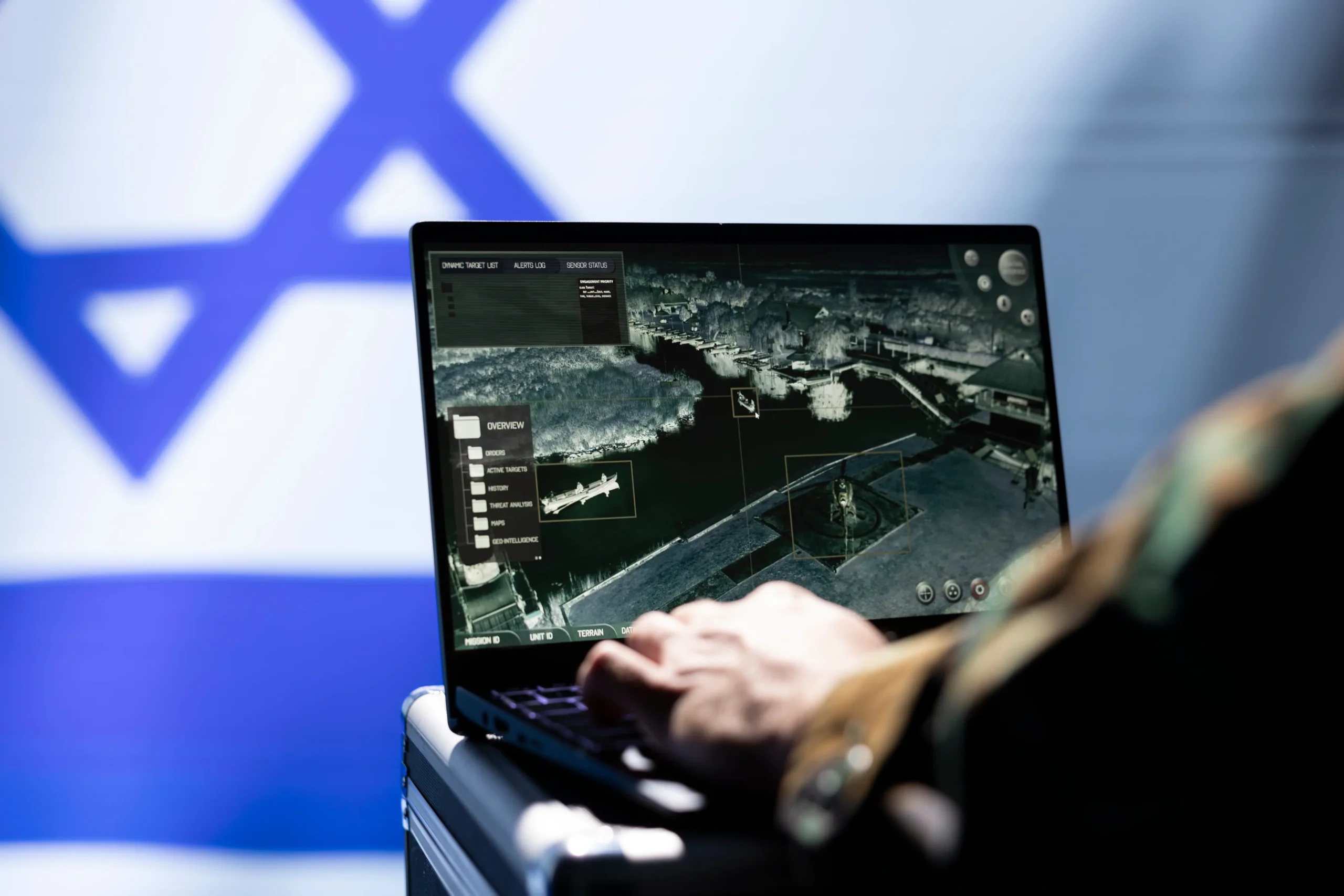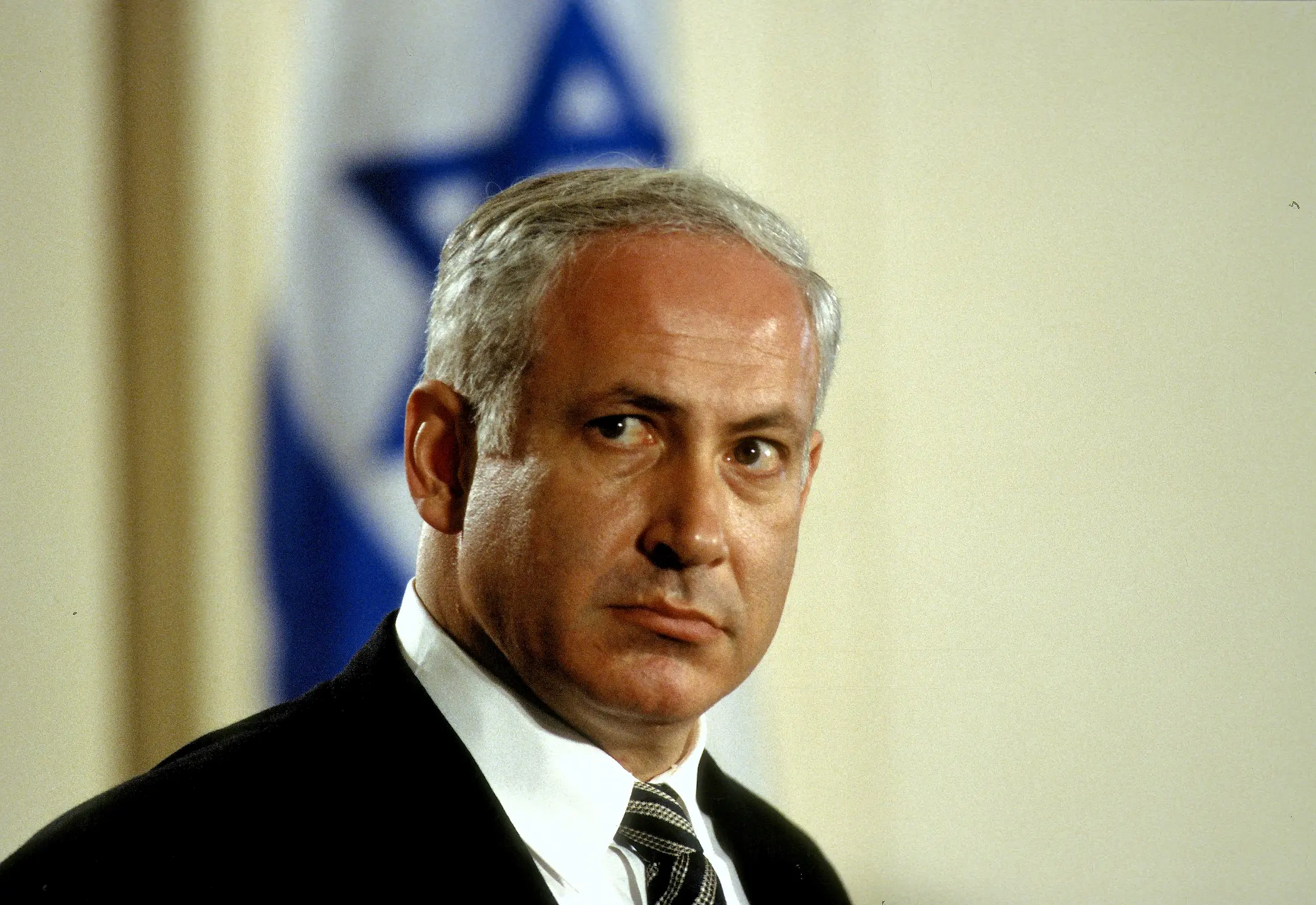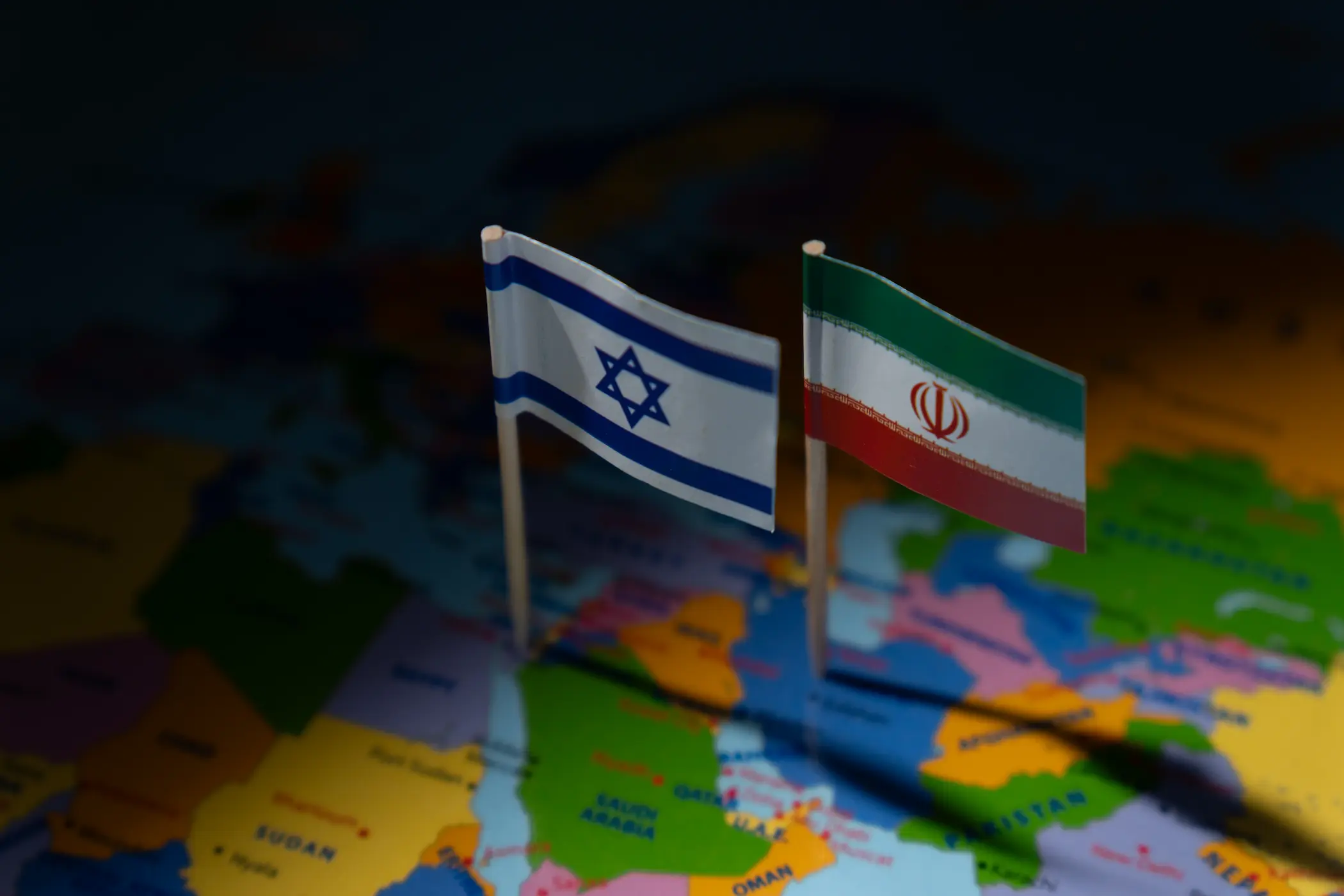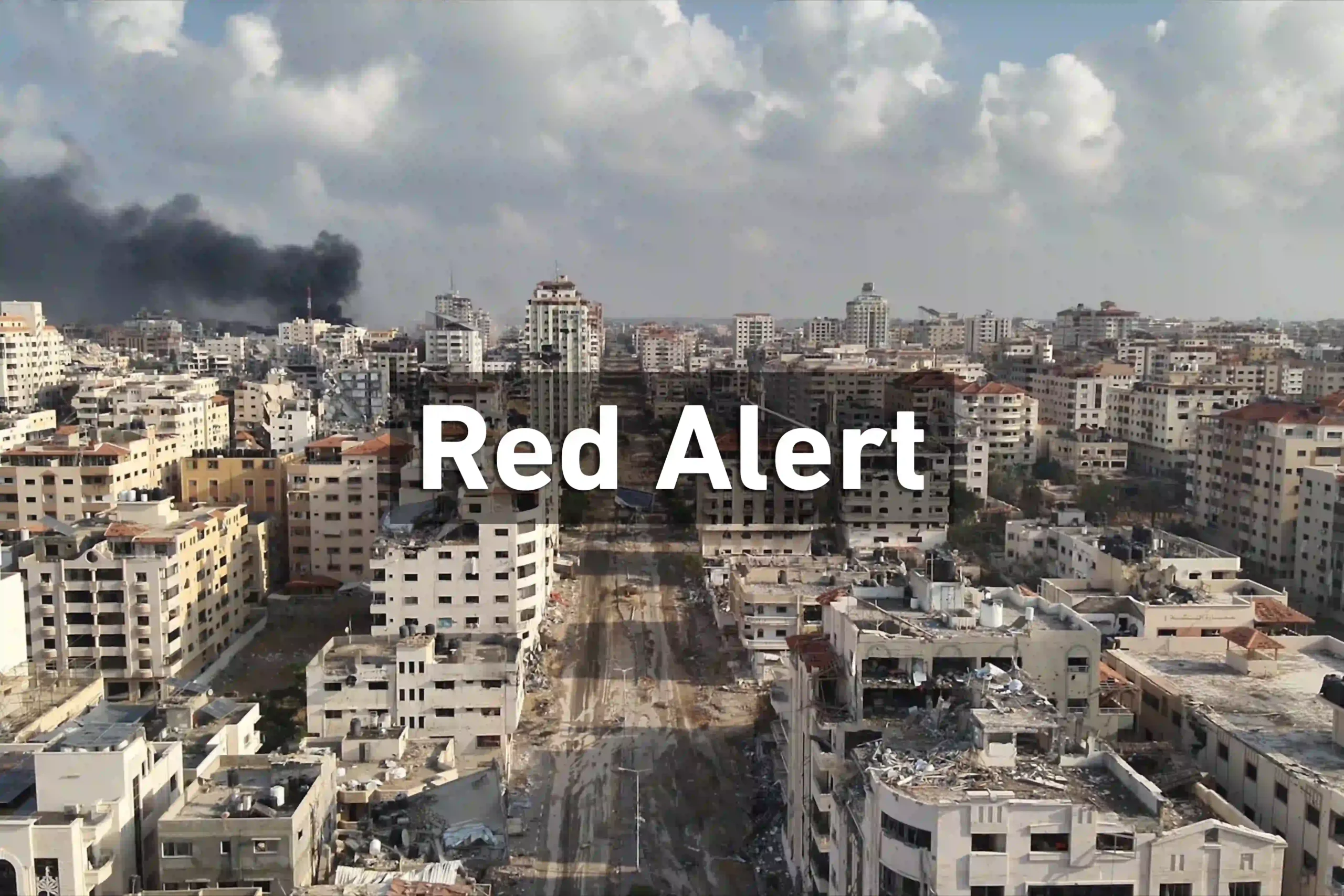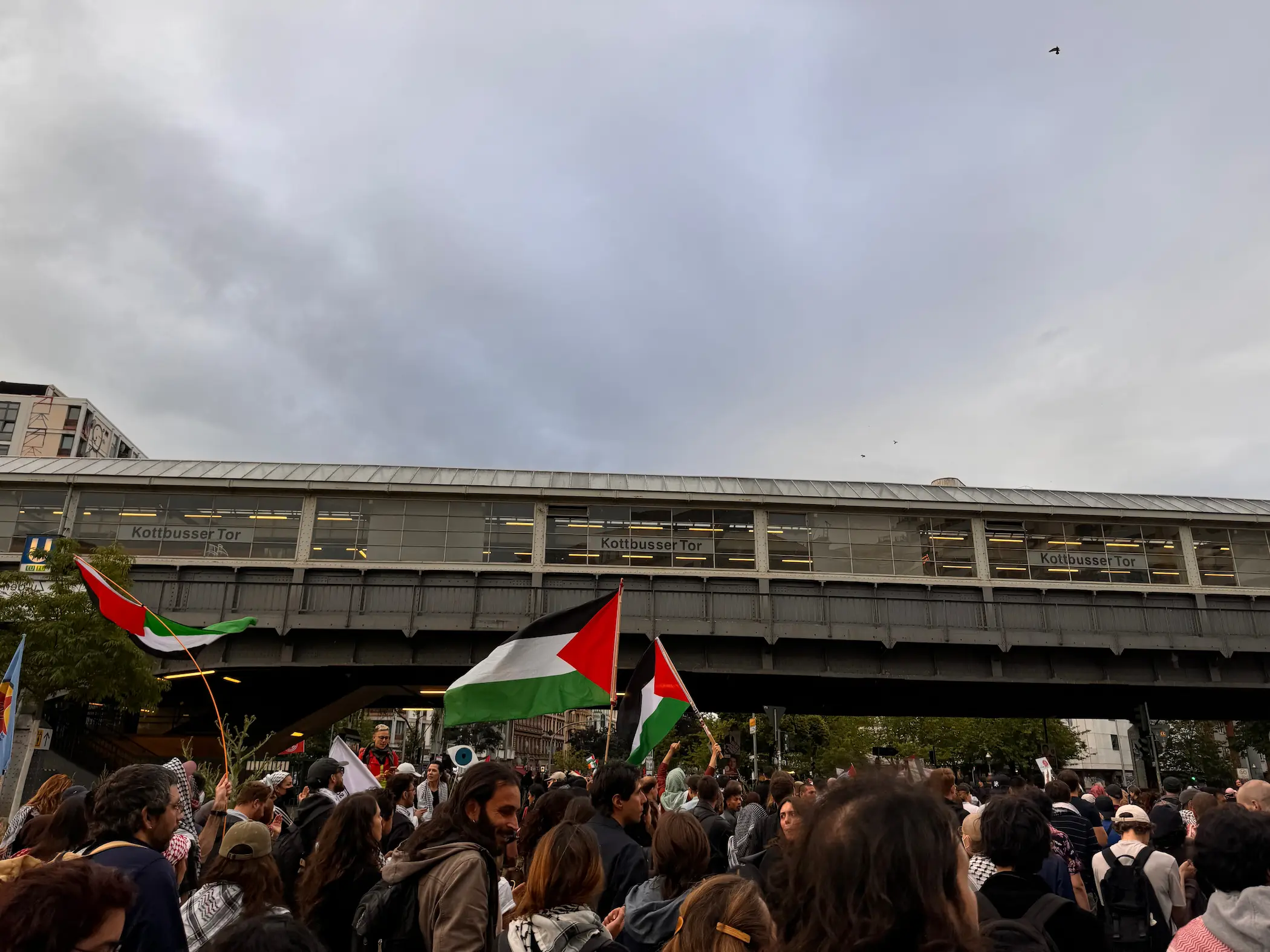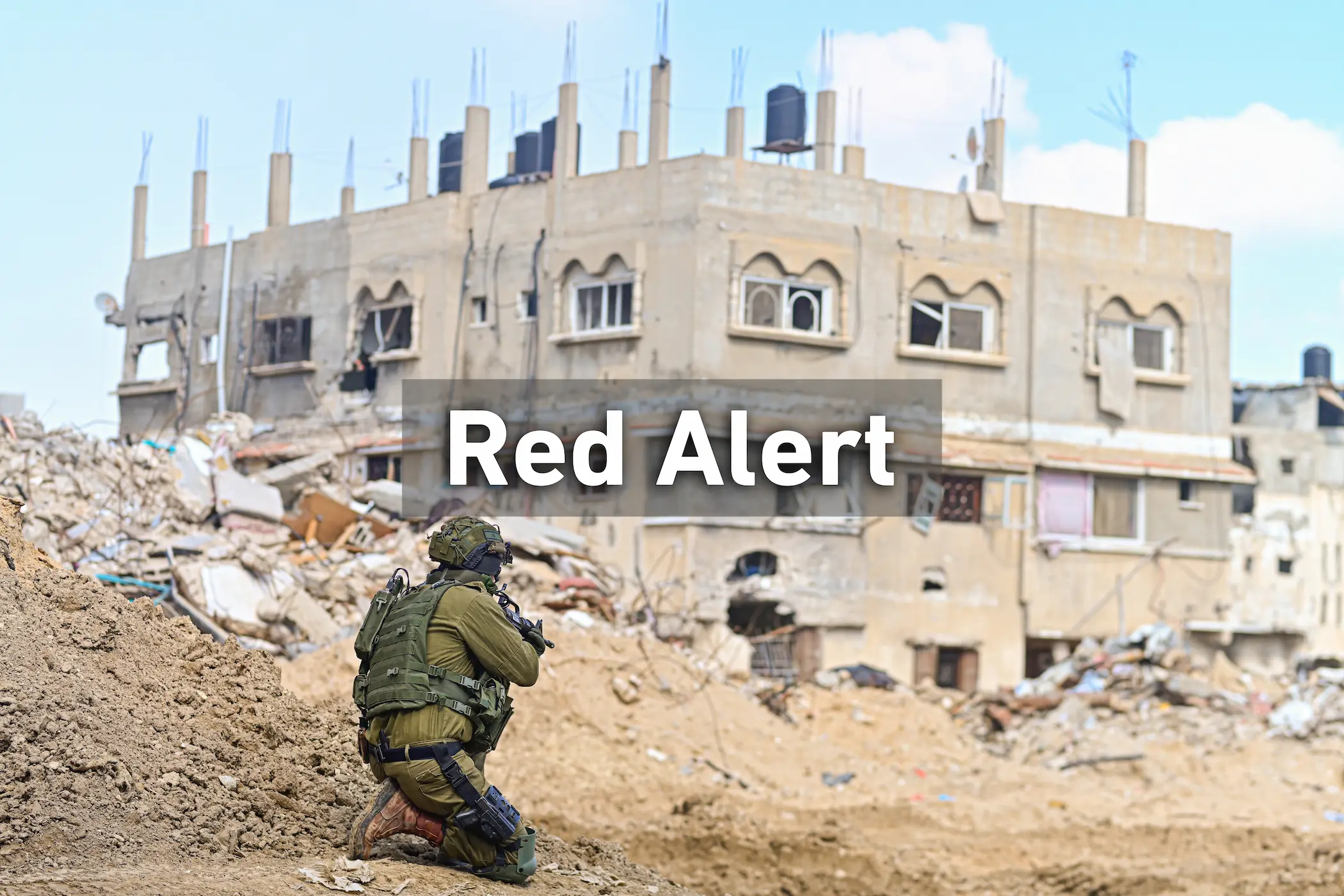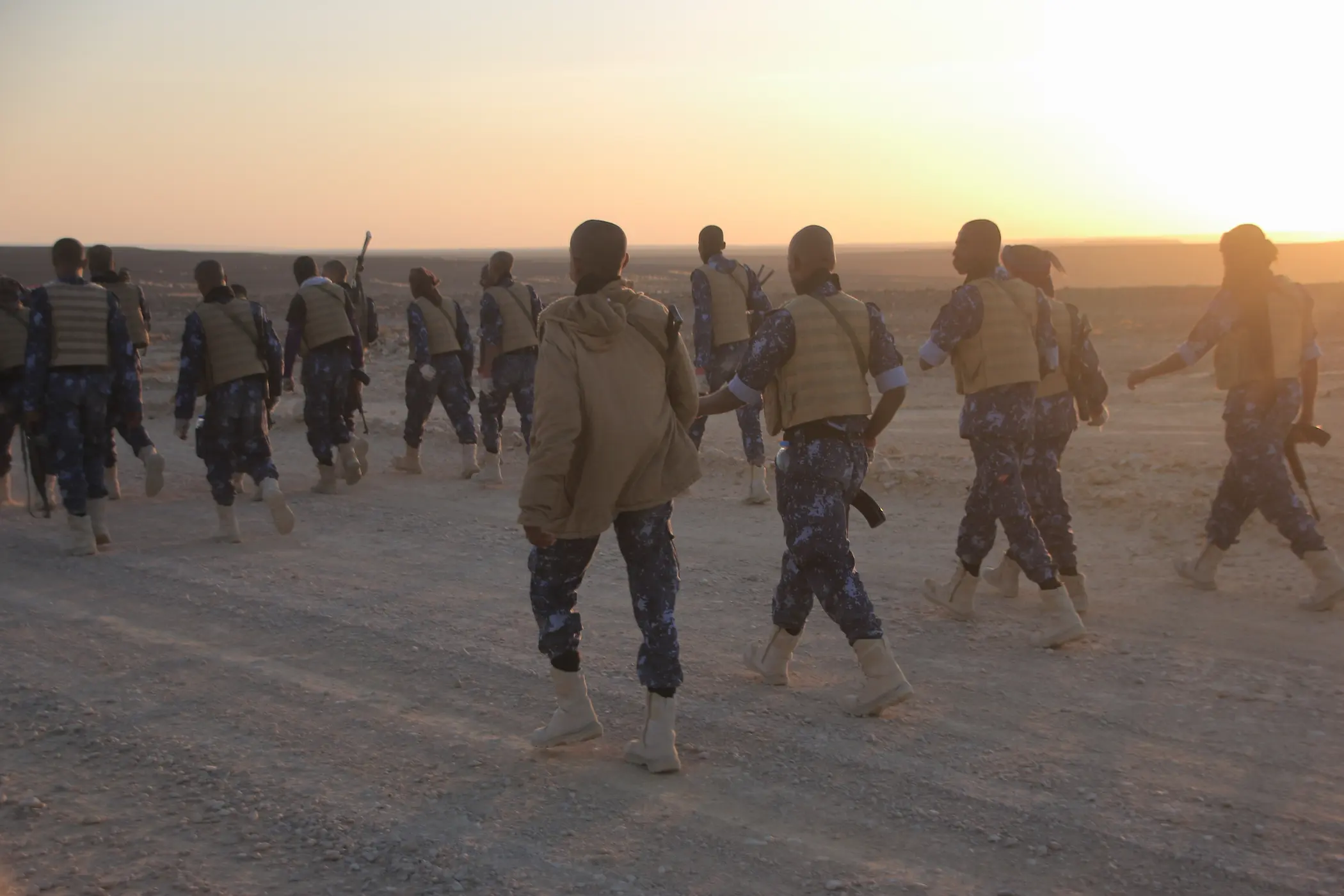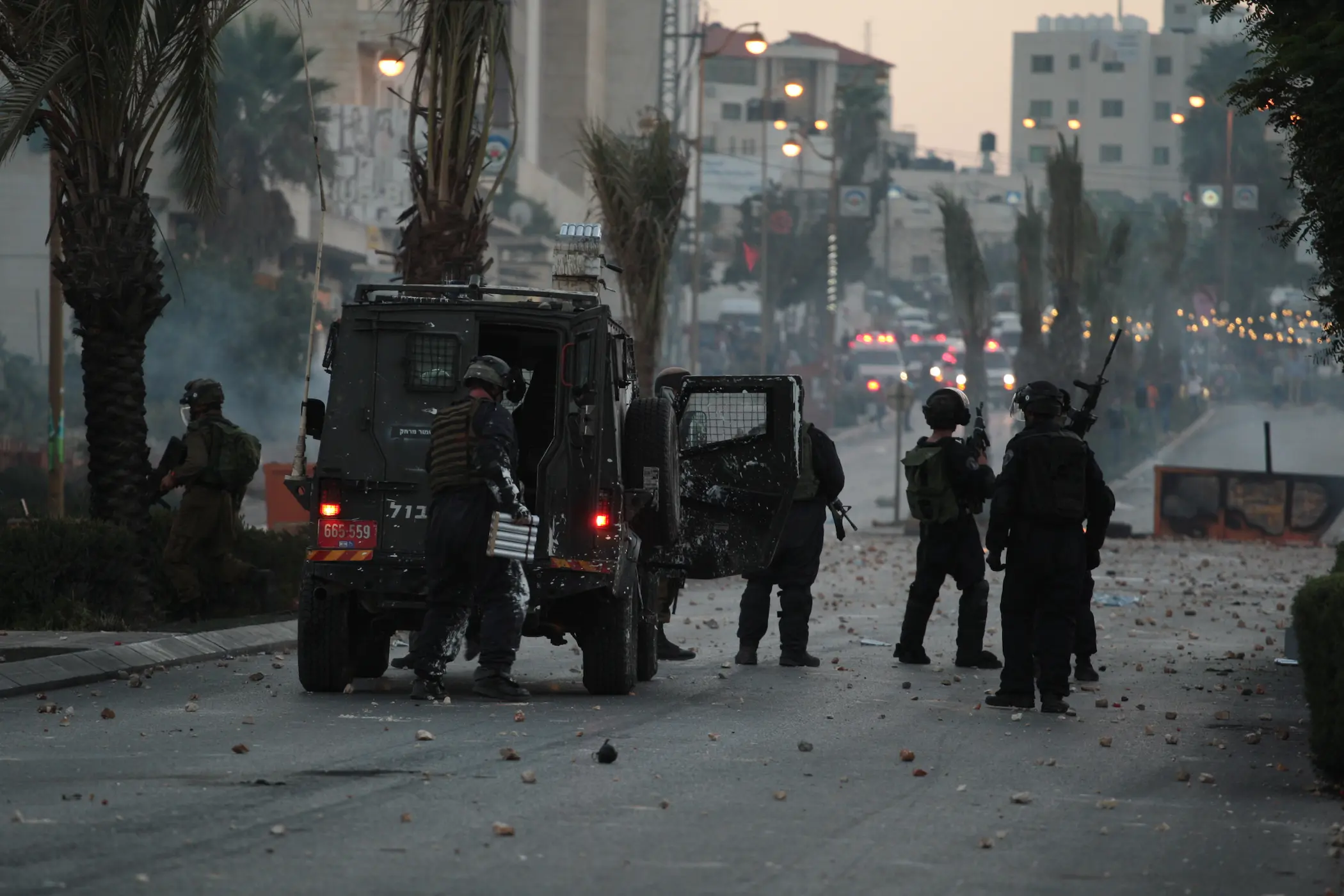16 Oct 2025
Algorithms of Genocide: From Silicon Valley to the Gaza Strip
The tools of twenty-first-century warfare are no longer confined to conventional weapons such as missiles, tanks, and aircraft. They have expanded to encompass cloud-computing platforms, artificial-intelligence systems, and data-processing capabilities developed and managed by major U.S.-based technology corporations, including Microsoft, Google, and Amazon. These companies have become central pillars in the conduct of modern digital warfare, with their decisions and policies exerting profound geopolitical influence and forming an integral component of contemporary global power dynamics.
In this context, the relationship between commercial technology corporations and the Israeli military has undergone a profound transformation, moving beyond the traditional model of supplying hardware and software to establish digital infrastructure as a central instrument in the management of modern conflict, most notably during the war on Gaza. A new paradigm of integration between the military and the private sector has emerged, in which commercial digital systems have become an inseparable component of military capability, blurring the boundaries between market-driven services and state security architectures.
The management of the global narrative surrounding humanitarian catastrophes, including the confirmed famine and persistent reports of atrocities, has become inseparable from the content-governance policies imposed by major digital platforms controlled by technology conglomerates. These platforms frequently amplify official narratives while minimising or obscuring the magnitude of famine and conflict. At the same time, they enable advanced surveillance mechanisms that restrict or silence independent media operating within conflict zones.
The war in Gaza has underscored the dual and increasingly intricate role of major technology corporations, particularly Google (Alphabet Inc.) and Microsoft Corporation, in both modern warfare and global information control. These entities operate within a mutually reinforcing dynamic, providing specialised cloud-computing and artificial-intelligence infrastructure that enables unprecedented levels of lethal military operations and mass surveillance across Gaza and the occupied territories. Concurrently, they deploy advanced mechanisms of information control, encompassing internal content moderation, algorithmic bias, and data suppression, to recalibrate public narratives and shield corporate power from accountability.
This analysis, therefore, examines the role of technology corporations in shaping the dynamics and repercussions of the conflict in Gaza, exploring how they contribute to the engineering of the informational, political, and humanitarian landscape within the framework of contemporary warfare. In this process, these corporations are transformed from ostensibly neutral service providers into active participants within the conflict’s infrastructural ecosystem.
22 Sep 2025
From Diplomacy to Expansion: Netanyahu’s Unpredictable War Path
Netanyahu’s ambitions are no longer confined to diplomacy or the pursuit of normalisation agreements. The Abraham Accords, once seen as his utlimate goal of his contemporary regional strategy, now appear irrelevant, cast aside in favor of a far more aggressive vision. What is unfolding is not the politics of peace but the politics of expansion, where no Arab country can assume immunity. The question of which state will be targeted next is impossible to predict, precisely because Netanyahu’s actions are driven less by rational calculation than by the confidence that comes with unconditional American support. Few could have imagined that Doha, with its U.S. military base and status as a close Washington ally, would be struck, yet it happened. This unpredictability signals a dangerous reality: the scale of war is set to widen, and any country in the region could find itself Israel’s next target.
18 Sep 2025
The War of June 2025: A Clash of Civilisations or a Catalyst for a New Middle East?
As many regional and global powers rush to reshape the Middle East to serve their strategic interests, the past two years have been marked by a cascade of transformative and often tumultuous events. These include the Israeli army’s large-scale invasion of the Gaza Strip following October 7, efforts to diminish Hezbollah’s influence in Lebanon, the fall of the Assad regime in Syria, intensifying Israeli military operations against Iran, and most recently, a wave of Western countries intending to formally recognise a Palestinian state alongside Israel’s announcement of plans for the annexation of the West Bank and a comprehensive occupation of the Gaza Strip.
Together, these rapid developments not only underscore deepening conflict and instability but also actively fuel the emerging discourse about the "New Middle East", a strategic framework envisioned by key actors outside of the region that seeks to redefine the geopolitical, security, economic, and diplomatic order of the region. The intertwining of hard power manoeuvres, shifting alliances, and economic realignments signals a significant recalibration rather than a mere continuation of the status quo.
In 2025, the potential rise in Western recognition of Palestinian statehood reflects growing international dissatisfaction with existing diplomatic frameworks and a push to rethink longstanding regional issues, directly challenging Israel’s traditional security and diplomatic calculus. Concurrently, Israel’s authorised military plan to take full control of Gaza exemplifies a decisive shift toward hardening its territorial and security posture, marking an unprecedented phase in Israeli-Palestinian relations and regional politics.
The confluence of these developments amplifies the narratives and policies underpinning the New Middle East: a vision premised on assertive state-centric realignments, expanded normalisation efforts, a recalibrated balance of power, and an economy-driven model of regional transactions. This evolving order encompasses ambitions to diminish Iranian influence, redefine Palestinian sovereignty on new terms, and facilitate deeper economic and security integration among select regional actors.
Ultimately, these events serve both as catalysts and manifestations of the "New Middle East" discourse. They reflect a region in flux where entrenched conflicts and new diplomatic initiatives are simultaneously eroding old paradigms and opening pathways for a fundamentally restructured Middle Eastern landscape.
This paper critically explores how the recent rapid developments in the Middle East contribute to shaping competing visions of the region’s future. It assesses whether the ongoing transformations reflect a deeper realignment driven by strategic state interests, expanding economic interdependence, and a recalibrated regional order that transcends historical cycles of conflict. Specifically, the analysis considers if these changes primarily illustrate Samuel Huntington’s "Clash of Civilisations" thesis—attributing post-Cold War regional conflicts to cultural and religious identity divisions—or if they instead represent a deliberate and calculated strategic effort to "reshape the Middle East" through redefined state priorities, shifting power dynamics, and newly forged regional and international alliances.
10 Sep 2025
Red Alert: Israel Orders Full Evacuation of Gaza City
In a further escalation of the nearly two-year war, Israel on Tuesday ordered the full evacuation of Gaza City, home to roughly a million Palestinians, ahead of what Prime Minister Benjamin Netanyahu described as the “beginning” of an intensified ground manoeuvre.
The Israel Defense Forces (IDF) dropped thousands of leaflets instructing residents to flee south toward the overcrowded al-Mawasi “humanitarian zone,” while airstrikes targeted high-rise towers and urban neighbourhoods. The decision marks a turning point in Israel’s campaign, signalling a shift from partial military control of Gaza City to full occupation.
17 Aug 2025
Domino Effect: Are More States Moving Toward Recognising Palestine?
Recent statements by France, the United Kingdom, and Canada—subsequently echoed by other European states—on their intention to recognise a Palestinian state in September mark a notable transformation in the policies of major Western powers toward the Palestinian question. This development comes against the backdrop of the deepening humanitarian catastrophe in Gaza, manifested in widespread famine and a death toll exceeding 60,000, which has further amplified international calls for an urgent political resolution to the decades-long Israeli–Palestinian conflict.
The announcements from Paris, London, and Ottawa—particularly France’s unconditional pledge alongside the conditional approaches adopted by the United Kingdom (UK) and Canada—represent a clear departure from traditional diplomatic norms, which had long tied recognition of a Palestinian state to the conclusion of a comprehensive negotiated peace agreement. This shift reflects mounting frustration over the stalled peace process, coupled with a growing conviction that conventional pathways have ceased to yield results. Recognition of Palestine is now increasingly seen not merely as the outcome of peace but as an instrument to catalyse the political process, thereby reshaping the diplomatic tools available for addressing the conflict and establishing a precedent that other states may exploit to strengthen international pressure.
At the international level, between 140 and 147 of the 193 UN member states already recognise Palestine as a sovereign state. This broad consensus provides the reference framework for understanding the recent decisions taken by France, the UK, and Canada. Notably, these three countries are all members of the G7, none of which had taken such a step before France’s declaration. France—Europe’s most populous nation—thus emerges as a prominent actor in this diplomatic shift, with both France and Canada poised to become the first G7 states to extend formal recognition to Palestine.
By contrast, the U.S. remains the sole permanent member of the United Nations Security Council (UNSC) that has yet to recognise the State of Palestine. This imbues the current shift with symbolic weight, laying the groundwork for a recalibration of diplomatic pressure on both Israel and the U.S., and potentially encouraging other hesitant Western states to follow suit. The divergence of positions within the Atlantic powers also underscores how internal pressures and the urgency of the humanitarian crisis have shaped the emergence of more assertive stances. Against this backdrop, this analysis explores the drivers behind this shift and its political and security implications for the states concerned, alongside the anticipated responses from Israel and the U.S.
5 Aug 2025
Red Alert: Netanyahu Plans Full Invasion of Gaza
Prime Minister Benjamin Netanyahu will convene Israel's Security Cabinet on Aug. 05, 2025 to approve plans for a full military takeover of the Gaza Strip, marking a critical escalation in the conflict with Hamas. The proposal, however, faced strong opposition from within the Israeli military and from hostage families, who raised serious concerns about the humanitarian impact and operational risks. While the Israel Defence Forces (IDF) already controls around 75% of Gaza, Netanyahu pushed to expand military operations to cover the entire territory, including densely populated areas believed to harbour hostages—a plan opposed by IDF Chief of Staff Lt Gen. Eyal Zamir. This decision came after ceasefire and hostage negotiations collapsed, with Netanyahu stressing the objectives of defeating Hamas, securing the release of hostages, and neutralising Gaza as a future threat to Israel.
In a dramatic development, Netanyahu cancelled a planned visit by Lt Gen. Zamir to Washington upon briefing him on the new direction and accelerating strategic shifts. Zamir explicitly rejected the proposed plan, threatening resignation if it were approved. The military’s reservations centred on fears for the hostages’ lives, particularly in areas such as Deir al-Balah that had not been fully “cleansed” of Hamas fighters. Additionally, IDF leadership expressed concerns about the erosion of the army’s combat capabilities, citing manpower shortages after nearly two years of continuous conflict, thereby urging a more cautious containment strategy that would exert pressure on Hamas without engaging in a protracted and expansive occupation.
3 Jun 2025
Why the Houthis Insist on Attacking Israel?
The Houthi armed group has been launching missile and drone attacks on Israel since the start of the Hamas-Israel war in October 2023. While these actions have been undertaken to show solidarity with Gaza and the Palestinian cause, the Houthi utilised these attacks to increase its popularity in Yemen. Moreover, the Houthi group, which is mainly supported by Iran, used these attacks to prove that it is capable militarily of engaging with foreign powers, hence delivering a message to the Aden-based legitimate government and its Gulf allies that it is militarily ready to engage with them.
22 Apr 2025
Truce and Tactic: The Political Calculus of Ceasefires
In today’s volatile political landscape, ceasefires are becoming increasingly relevant. While they are not designed to bring an immediate end to conflicts, they aim to provide a temporary respite in which opposing parties can engage in dialogue and work toward a resolution. Ideally, ceasefires function as transitional phases within ongoing wars, offering the opportunity for negotiation and compromise. However, as a political tool, ceasefires often fail to meet their objectives. Their effectiveness is not simply determined by military action, but by the political will and complex considerations of the parties involved. Ceasefires are heavily influenced by the intentions of the signatories, as not all parties are genuinely committed to ending hostilities. This raises important questions about how we define the success or failure of a ceasefire. If the stated goal is to end the war, yet political agendas remain hidden, the resumption of conflict may not necessarily mean that the ceasefire has failed—it could indicate that one party's objectives were unfulfilled, while the other may have achieved its goals.
Additionally, each ceasefire agreement is unique, shaped by the specific political dynamics at play, including the roles of mediators, guarantees, and the structure of the agreement itself. The Israel-Hamas ceasefire is a striking example of this complexity. While it may appear to be a failure from a broader, collective perspective, it could represent a significant political and military opportunity for Israeli Prime Minister Benjamin Netanyahu. The influence of external actors, such as U.S. President Donald Trump, must also be considered as part of the equation. Ultimately, the fragile truce between Hamas and Israel raises a critical question: Is it merely a political process, or does it reflect a deeper, more strategic calculation that extends beyond the immediate cessation of hostilities?
4 Mar 2025
A Troubled Chain of Command: Politics and the IDF
The appointment of Major General Eyal Zamir to the helm of the Israeli Army, will take office on March 6, transcends a routine leadership transition. It portends a potential strategic recalibration in Israeli military thinking, responding to evolving threats and perceived doctrinal vulnerabilities. Lauded across Israel's political spectrum as the right leader for these turbulent times, Zamir inherits a complex and precarious landscape. He is tasked with revitalizing an army perceived as "faltering," navigating a potentially obstructive political environment, and addressing a volatile region simmering with unresolved conflicts. Adding to the weight on his shoulders is the historical baggage he carries in the eyes of Palestinians, for whom his name evokes memories of harsh measures during past uprisings and operations. This analysis delves into the implications of Zamir's appointment, the delicate dance between political leadership and military autonomy in Israel, the anticipated doctrinal shifts under his command, and the spectre of looming confrontations on multiple fronts.
20 Feb 2025
The Al Habtoor Research Centre Gaza Reconstruction Plan
The Gaza Strip, tragically marked by recurring cycles of conflict and destruction, faces a complex and deeply entrenched crisis that extends far beyond the visible damage to its buildings and infrastructure. The repeated devastation has crippled its economy, fractured its social fabric, and left its population in a state of perpetual vulnerability, demanding a comprehensive and transformative approach to recovery. Traditional reconstruction efforts, while necessary, have often fallen short by primarily focusing on the immediate task of rebuilding damaged structures. These efforts, though well-intentioned, have frequently failed to address the fundamental underlying economic and governance challenges that perpetuate instability and hinder long-term progress. This report, therefore, proposes a fundamentally different approach: a three-pillar framework that integrates immediate humanitarian relief with long-term strategies for economic sustainability and the establishment of durable peace. This holistic approach recognizes that true recovery requires not only rebuilding physical infrastructure but also fostering economic opportunity, strengthening governance, and promoting social cohesion, ultimately breaking the cycle of conflict and paving the way for a more stable and prosperous future for the people of Gaza. This three-pillar approach addresses the problem from a broader perspective.
18 Feb 2025
The New Frontier: West Bank is the New Gaza
In recent months, the West Bank has witnessed rising violence. The timing in which the West Bank is witnessing escalation is not a coincidence, it is connected to the ceasefire in Gaza. While right-wing elements refuse the ceasefire deal, it is generally argued that Israeli Prime Minister Benjamin Netanyahu has to appease those elements in his coalition. Netanyahu who is believed to have been pressured to accept the deal, does not find any alternative to satisfy right wingers in his coalition other than shifting the war to the West Bank. While this understanding is not entirely false, it is suggested that recent events in the West Bank are part of Israel’s expansionist plan aiming at imposing Israeli sovereignty on the territory. Using legal and political manoeuvres, Israel aims to turn the West Bank into another Gaza which results in broader regional implications.
6 Feb 2025
Will Israel Suceed in Dissolving UNRWA During Trump’s Second Term?
In a significant escalatory move, Israel’s Ambassador to the United Nations, Danny Danon, has notified the UN Secretary-General in writing that UNRWA must cease its operations and vacate its premises by January 30, 2025. This ultimatum follows Israel’s enactment of a law last October banning the agency’s activities within its territory, including occupied East Jerusalem. The decision is rooted in Israel’s allegations that UNRWA has been infiltrated by Hamas, with claims that some of its employees were involved in the Oct. 7, 2023, attacks.
This paper examines the evolving and contentious relationship between Israel and UNRWA. It also explores potential U.S. intentions to dismantle the agency, particularly in light of Donald Trump’s return to power and his recent remarks regarding the displacement of Gaza’s population and the repercussions of this ban.
